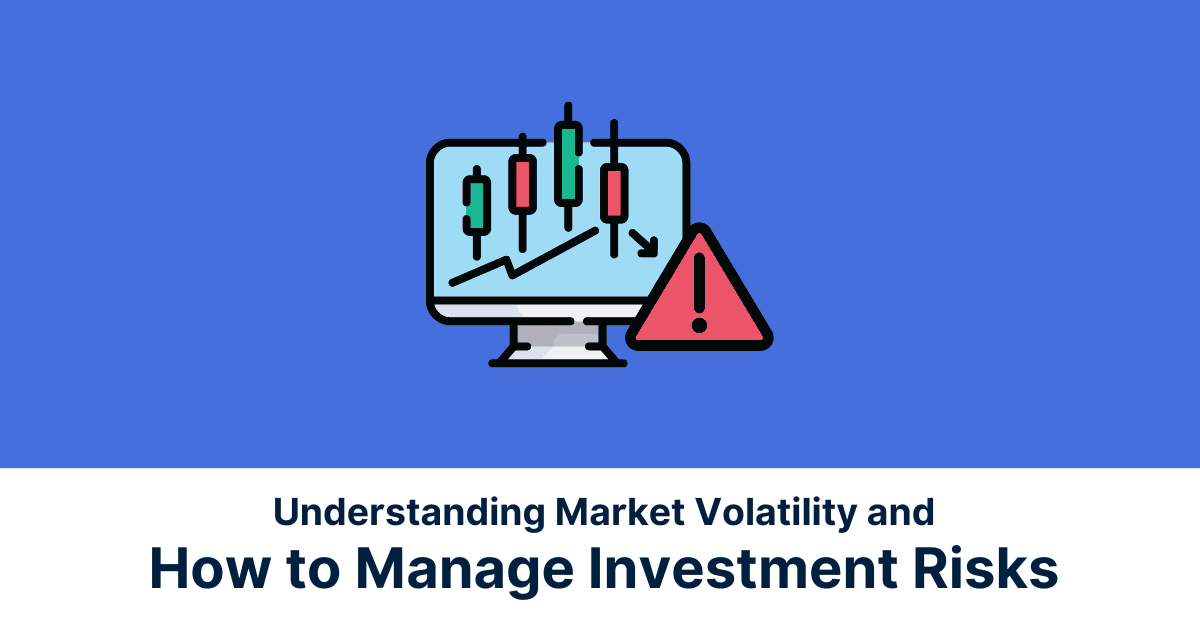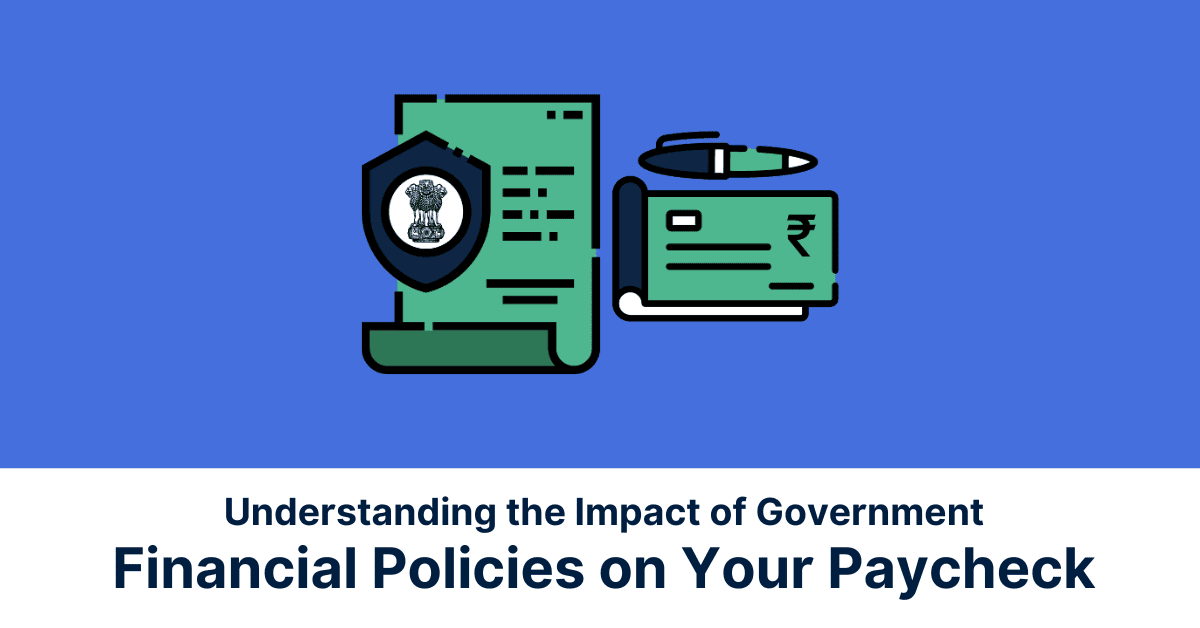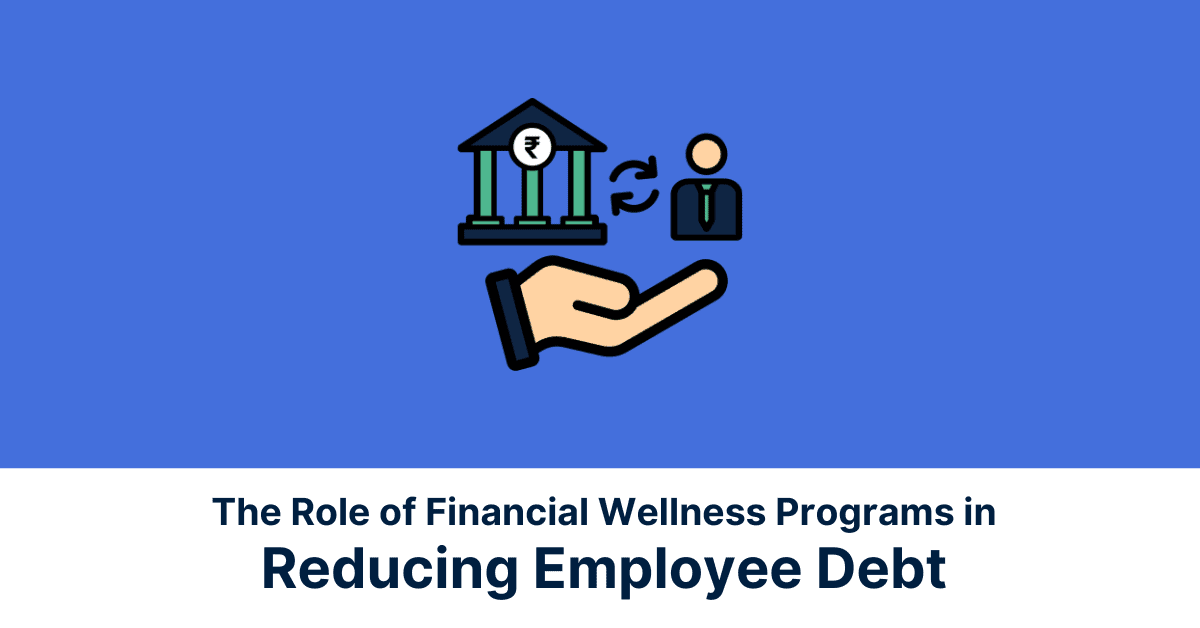Financial security and achieving your dreams aren’t just about the here and now. Life is a journey, and how you manage your money today will impact your tomorrow. That’s where long-term financial planning comes in. It’s the roadmap to manoeuvre your financial future, setting goals and building strategies that adapt alongside you through every twist and turn life throws your way.
Whether you’re just starting out, building a family, or nearing retirement, as you read on you will understand the strategies required to create a financial plan that grows and changes as you do.
Financial Planning in Early Adulthood (20s and Early 30s)
Your 20s and 30s are a prime time to launch your financial future. It’s when you’re gaining independence but also juggling new priorities. This is why financial planning is crucial. Early saving benefits from compounding, where your money grows exponentially. By setting good habits now, like building an emergency fund, paying yourself first, and managing debt, you’ll be on track for long-term financial security.
Establishing Financial Foundations
The golden years for laying the groundwork of your financial future are like building a sturdy house; a strong foundation ensures a secure future. This period is crucial for mastering budgeting, saving, and strategic investing.
Budgeting – Your Financial Roadmap
A budget is a personalised financial plan, that helps you control your money and achieve your goals. By tracking income and spending, you can identify unnecessary expenses and allocate more towards savings and investments. Numerous budgeting apps simplify this process.
Saving – Your Financial Security’s Foundation
An emergency fund is essential, covering unexpected expenses like car repairs or medical bills, and preventing reliance on high-interest debt. Once established, focus on long-term goals such as a home down payment, education, or retirement.
Investment: Your Long-Term Growth Engine
In your 20s and 30s, leverage time to benefit from compounding. Invest in low-cost index funds or retirement accounts with employer contributions. Consult a financial advisor to align investments with your risk tolerance and goals.
Mastering budgeting, saving, and investing will secure your financial future.
Managing Debt
Effectively managing debt and building a strong credit score are crucial steps towards financial stability and freedom. Whether dealing with student loans, credit card balances, or other types of debt, developing a strategic plan can significantly impact your long-term financial health. Here are key strategies to focus on:
Managing Debt and Boosting Your Credit Score:
Debt, especially student loans, is common in your 20s and 30s. Manage it responsibly to avoid financial pitfalls. Develop a repayment plan that suits your budget, considering options like income-based repayment. Making bi-weekly payments can reduce interest over time.
Debt Management Strategies:
Prioritise high-interest debt, possibly consolidating it into a lower-interest loan. Create a repayment schedule. Avoid impulse spending and pay off credit card balances monthly.
Building a Good Credit Score:
Timely payments on loans and low credit card balances boost your credit score, impacting your ability to secure loans and other opportunities. Responsible debt management and a good credit score are key to financial success.
Financial Planning in Family Formation Years (Late 30s to 40s)
Let’s look at some of the financial dos and don’ts to keep in mind if you’re a parent in the late 30s-40s.
Financial Dos:
- Build an Emergency Fund: Ensure you have a robust emergency fund that covers 3-6 months of living expenses to protect against unexpected financial setbacks.
- Prioritise Retirement Savings: Maximise contributions to your retirement accounts, such as EPF, PPF, and VPF. Your retirement savings should take precedence over other financial goals.
- Save for Children’s Education: Start an education savings plan for your children. Utilise tax-advantaged savings accounts and consider systematic investment plans (SIPs) in mutual funds.
- Diversify Investments: Spread your investments across various asset classes, including stocks, bonds, real estate, and mutual funds, to balance risk and reward.
- Review and Update Insurance Coverage: Ensure you have adequate health, life, and disability insurance to protect your family’s financial future.
- Estate Planning: Create or update your will and consider setting up trusts to manage your assets and ensure they are distributed according to your wishes.
- Financial Literacy: Educate yourself and your family about personal finance to make informed decisions and instil good money habits in your children.
Financial Don’ts:
- Avoid High-Interest Debt: Refrain from accumulating high-interest debt, such as credit card balances. Focus on paying off existing debt to free up more money for savings and investments.
- Don’t Neglect Retirement for Kids’ Education: Avoid sacrificing your retirement savings for your children’s education. They can borrow for college, but you can’t borrow for retirement.
- Don’t Overlook Insurance Needs: Failing to maintain adequate insurance coverage can leave your family vulnerable to financial hardship in case of unexpected events.
- Avoid Impulsive Investments: Steer clear of impulsive investment decisions based on market trends or tips. Always conduct thorough research or consult a financial advisor.
- Don’t Ignore Estate Planning: Neglecting to plan your estate can result in legal complications and disputes among your heirs. Ensure your wishes are clearly documented.
- Avoid Lifestyle Inflation: Resist the temptation to inflate your lifestyle as your income grows. Instead, increase your savings and investments to secure your financial future.
- Don’t Delay Financial Planning: Procrastinating financial planning can lead to missed opportunities and unpreparedness for future needs. Start planning early and review your financial plan regularly.
Advanced Financial Planning
As you approach the late 30s and 40s, financial planning is crucial as you face increased expenses like childcare and education while reaching your peak earning potential. Adjust your financial plan to reflect shifting priorities, and grow your emergency fund to cover several months of expenses.
Maximise retirement savings by increasing contributions and utilising employer provident fund contributions. Secure adequate life insurance and consider estate planning to ensure your family’s financial security. Balance saving for your children’s education with your retirement goals. Maintain open financial communication with your partner to create financial harmony at home.
Investment Strategies
Strategic investments are key to building wealth in your 30s and 40s. Let’s look at methods of diversification and risk management that can ensure a smooth investment journey.
The Power of Diversification
Diversification spreads your investments across various asset classes, industries, and geographies, reducing risk and enhancing long-term performance. It minimises the impact of dips in specific sectors and smooths out market fluctuations.
Examples of Diversification
- Asset Classes: Stocks, bonds, real estate, commodities
- Industries: Technology, healthcare, consumer staples, utilities
- Geographies: International developed markets, emerging markets
Risk Management Strategies
- Understanding Risk Tolerance: Know whether you prefer high-risk, high-reward investments or a conservative approach.
- Asset Allocation: Adjust your portfolio’s proportions based on your stage in life, emphasising growth or stability.
- Regular Rebalancing: Periodically adjust your portfolio to maintain your desired asset allocation.
Financial planning in Mid-Life (50s)
Your 50s mark a significant turning point. With children leaving the nest, careers reaching their peak, and retirement starts to loom on the horizon. This is where financial planning becomes more crucial than ever. Let’s take a look at what financial planning should look like when you are in your 50s.
1. Clearing Debts:
- Prioritise paying off all loans to avoid financial burdens in retirement.
- Transfer educational loans to children as they start earning to alleviate your debt.
2. Ramping Up Retirement Savings:
- Increase contributions to provident fund schemes like VPF for a robust retirement corpus.
- Save bonuses instead of spending them frivolously, directing them towards retirement.
3. Preparing for Future Expenses:
- Create a separate fund for significant expenses like children’s weddings alongside retirement savings.
- Avoid dipping into retirement funds for such expenses to ensure financial security.
4. Planning Post-Retirement Career:
- Begin exploring post-retirement career options to maintain income streams and engagement.
- Network and seek opportunities early to transition smoothly into post-retirement work.
5. Reviewing Health Insurance:
- Enhance health insurance coverage with top-up plans to meet potential medical costs in older age.
- Ensure sufficient coverage as health expenses tend to rise with age.
Maximising Wealth Accumulation
Building a secure retirement is all about maximising your wealth accumulation. Here are some key strategies to put you on the fast track:
- Boost Retirement Contributions: Increase your contributions to retirement accounts like voluntary provident funds (VPF). Think of it as supercharging your nest egg for a worry-free future.
- Pay Yourself First: Consistently allocate a portion of your income towards retirement, especially during your peak earning years. The power of compounding can significantly grow your savings over time.
- Review and Rebalance Your Portfolio: Don’t set it and forget it! Regularly review your investments to ensure they still align with your goals and risk tolerance. Rebalance as needed to maintain a healthy balance between growth potential and stability.
Preparing for Major Expenses
To handle major expenses like college tuition or hefty tax bills, be proactive. Start saving early – explore tax-advantaged educational savings plans to chip away at future costs. Research and leverage tax breaks and deductions to minimise your tax burden. Remember, sometimes bigger expenses require adjustments. Consider downsizing your lifestyle in non-essential areas or increasing income through side hustles to create more financial breathing room.
By planning and strategising – including exploring potential mortgage refinancing options–you can confidently navigate these milestones and ensure your long-term financial security isn’t compromised.
Financial planning while Approaching Retirement (60s)
Going through retirement in your 60s requires careful financial planning. Ensure your life savings are secure by reviewing and adjusting your investment strategy, maximising retirement account benefits, and considering delaying retirement if feasible. Manage your new income streams by understanding planning for pensions, and creating a realistic retirement budget.
Prepare for rising healthcare costs by reviewing health insurance and exploring long-term care options. Embrace retirement by planning activities and staying socially connected. Consulting a financial advisor can help tailor a plan to your needs. Embrace this new chapter with confidence and enjoy the golden years ahead.
Shifting investment strategies
Transitioning from wealth accumulation to retirement requires a shift in investment strategy towards generating reliable income and preserving your life savings. Focus on:
From Growth to Income:
- Prioritise Debt Instruments: Debt instruments like government bonds, fixed deposits (FDs), and Public Provident Fund (PPF) investments offer regular interest payments, providing a reliable source of income.
- Invest in Dividend-Paying Stocks: Companies with a history of consistent dividend payouts can supplement your income. Focus on established companies with a good track record over high-risk, high-dividend stocks.
- Consider Senior Citizen Savings Schemes: Government-backed schemes like the Senior Citizen Savings Scheme (SCSS) offer attractive interest rates and tax benefits, catering specifically to retirees.
Optimising Withdrawals:
- Utilise Retirement Schemes: Invest in instruments like the Employee Provident Fund (EPF) and National Pension System (NPS) that offer tax benefits at contribution, accumulation, and withdrawal stages.
- Minimise Tax Liability: Explore strategies like tax-saving investments under Section 80C to reduce your taxable income and maximise post-retirement income.
- Stagger Withdrawals: Plan your withdrawals to minimise your tax burden in any given year. Consider using multiple retirement accounts for a more flexible withdrawal strategy.
Consult a financial advisor for personalised withdrawal strategies to maximise income, minimise taxes, and ensure long-term financial security. Transitioning successfully requires adjusting investment priorities and seeking professional guidance for a secure and fulfilling retirement.
Estate and Legacy Planning
As you build a life and accumulate assets, planning for their future becomes crucial. Estate and legacy planning ensures your wishes are carried out after you’re gone, protects your loved ones, and allows you to leave a lasting impact. Here’s how to go through this important process:
Wills: Drafting a Will ensures clarity and control over asset distribution, minimises delays, and appointed guardians for minor children.
Trusts: Consider trusts for asset protection, estate tax planning, and staggered distribution to beneficiaries, especially in complex situations.
Healthcare Directives: A healthcare directive specifies medical treatment wishes, empowering loved ones and respecting autonomy in case of incapacitation.
Charitable Giving: Explore options like donations to registered charities or establishing charitable trusts to support causes you care about.
Consulting with legal and financial professionals can help create a personalised estate plan aligning with your needs and goals.
Retirement and Beyond
Retirement – a well-deserved break from the daily grind. But it’s also a launchpad for a new chapter. To ensure financial security, review your nest egg and consider consulting an advisor. Shift investments towards steady income sources like bonds and dividend stocks. Plan withdrawals to minimise taxes and healthcare costs.
Pursue passions you shelved before, from hobbies to volunteering. Stay socially connected – join clubs, travel, reconnect with loved ones. Prioritise physical and mental health with exercise, healthy eating, and learning new things to keep your mind sharp.
Finally, consider your legacy. A Will ensures your wishes are met. Charitable giving leaves a positive mark. Mentorship allows you to share wisdom and inspire the next generation. Retirement isn’t an ending, it’s a chance to redefine yourself and relish the possibilities that lie ahead.
Managing Retirement Finances
Living well in retirement requires effective financial management to ensure your life savings lasts. Here’s what you’ll need to consider doing:
1.Crafting a Sustainable Budget:
- Track spending pre-retirement to establish a realistic budget.
- Consider future expenses like healthcare and prioritise needs over wants.
2.Maximizing Income Streams:
- Utilise retirement savings strategically to generate income.
- Optimise Social Security benefits and explore part-time work or consulting for additional income.
3.Stretching Your Savings:
- Downsize to a more affordable home and eliminate high-interest debt.
- Delay major purchases and use credit cards strategically for essential expenses.
Health Care and Longevity Planning
Health care and longevity planning are crucial aspects of retirement preparation. Understanding the world of healthcare and choosing the appropriate supplemental health insurance plans are vital steps. Medicare equivalents in India, such as health insurance policies, require careful consideration to ensure comprehensive coverage for medical expenses during retirement.
Conclusion:
Going through different life stages requires careful financial planning. From early adulthood to retirement and beyond, setting goals, budgeting, saving, and strategic investing are crucial.
Financial planning isn’t a one-time event; it’s a lifelong journey. Remember, the key to financial success lies in starting early, creating a budget and sticking to it, managing debt wisely, investing consistently, and seeking professional guidance as required.
Financial security is the foundation for achieving your dreams and living a fulfilling life, at every stage of your journey. So take charge, embrace financial planning, and chart your course to a secure and prosperous future.
FAQs:
1.What are the best financial practices in my 20s to set me up for success?
Here are the best financial practices in your 20s to set yourself up for future success:
- Build an Emergency Fund: Aim for 3-6 months of living expenses saved in an easily accessible account. This protects you from unexpected costs without resorting to high-interest debt.
- Prioritise Debt Repayment: Focus on paying off high-interest debt like credit cards. Consider strategies like the snowball or avalanche method to tackle them efficiently.
- Budgeting: Track your income and expenses to understand your spending habits. Allocate funds towards savings and debt repayment, while still enjoying life.
- Invest in Yourself: Consider education or certifications that could increase your earning potential. Invest in your health through exercise and healthy eating habits.
- Build Your Credit Score: Pay bills on time and keep credit card balances low. A good credit score unlocks better interest rates on loans and mortgages in the future.
- Live Below Your Means: Don’t inflate your lifestyle based on your income. Avoid lifestyle creep and prioritise saving for your future goals.
2. How can I effectively plan for my children’s education and my retirement simultaneously?
Balancing saving for your children’s education and your own retirement can feel like a juggling act, but it’s definitely achievable. Here are some strategies to plan effectively for both goals:
Prioritise and Assess:
- Needs vs. Wants: Analyse your current financial situation. Differentiate between needs and wants in both areas – education and retirement. This helps you allocate funds effectively.
Saving Strategies:
- Maximise Employer Contributions: If your employer offers retirement plans with matching contributions, prioritise maximising those contributions. This is essentially free money towards your retirement.
- Automate Savings: Set up automatic transfers to savings accounts dedicated to both education and retirement. This ensures consistent savings and avoids the temptation to spend that money.
3. What should be my financial priorities as I transition into retirement?
To ensure your retirement savings last, it’s essential to focus on strategic financial practices. Begin by reviewing and adjusting your investments, shifting towards income-generating assets while planning withdrawals strategically to minimise taxes and preserve your principal. Maximise your income streams by optimising and utilising retirement accounts wisely, and exploring additional sources of income such as part-time work or monetising hobbies.
Create a realistic budget that prioritises needs over wants, considering potential future expenses like healthcare, and consider downsizing your lifestyle to free up funds. Manage debt effectively by eliminating high-interest debt early on. Plan for healthcare expenses by reviewing your health insurance coverage and researching long-term care options.
Seeking professional guidance from a financial advisor can provide personalised advice and ensure a secure and fulfilling retirement journey.
*Disclaimer:
The information contained herein is not intended to be a source of advice or credit analysis concerning the material presented, and the information contained in this article does not constitute investment advice. The ideas presented in the blog should not be used without first assessing your personal financial situation or without consulting a financial professional.



















